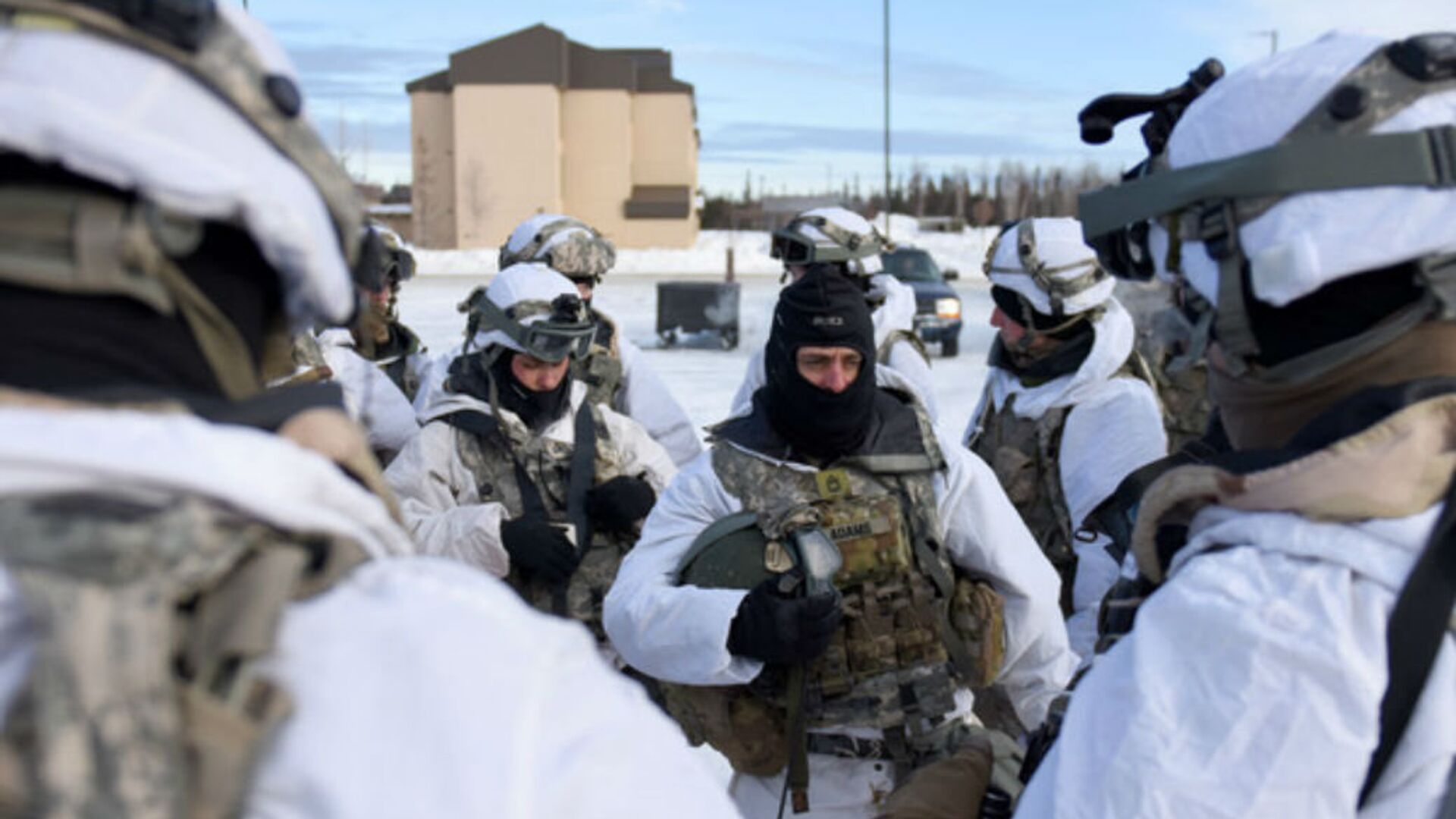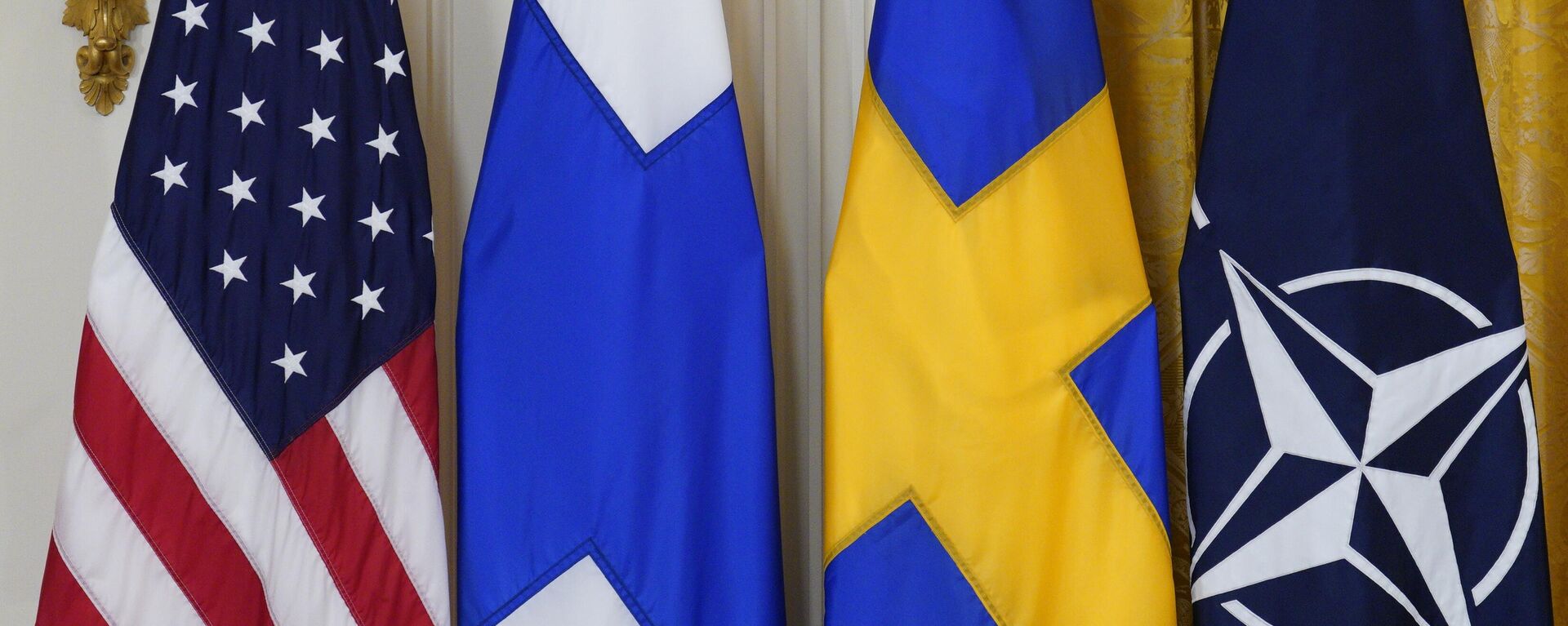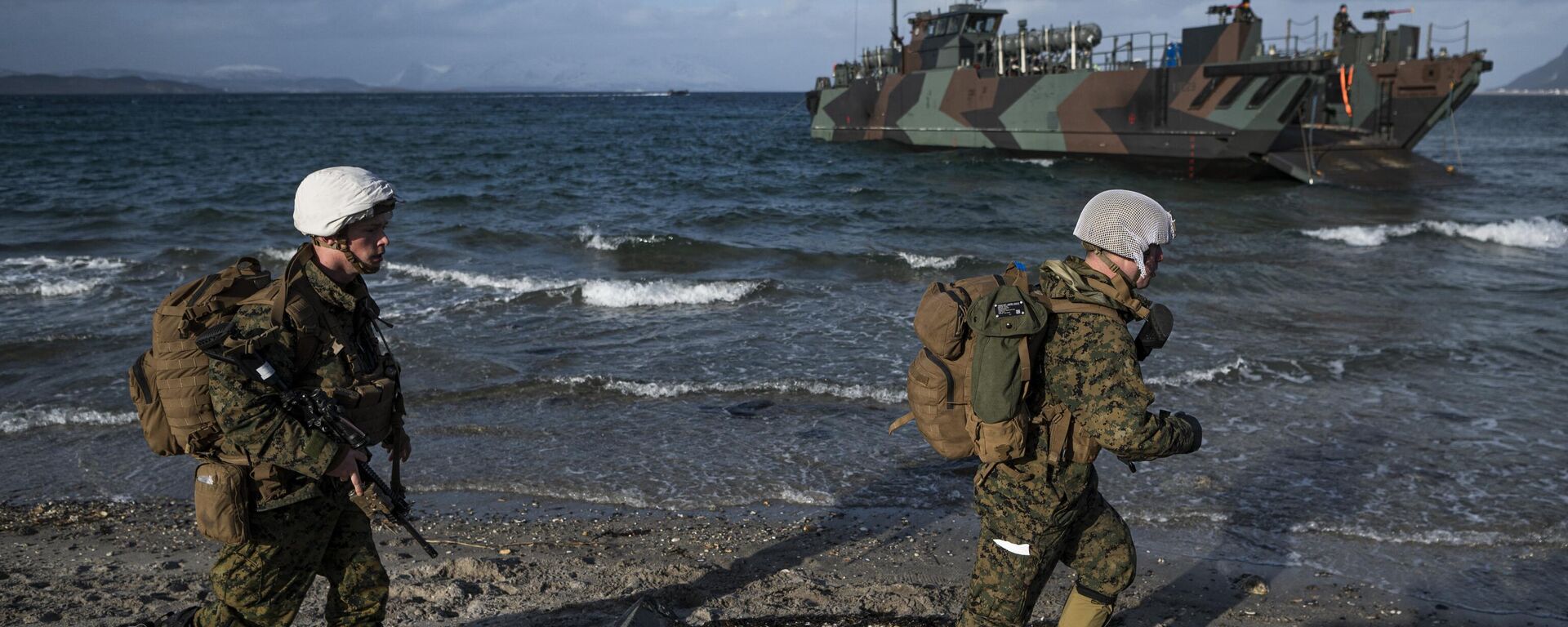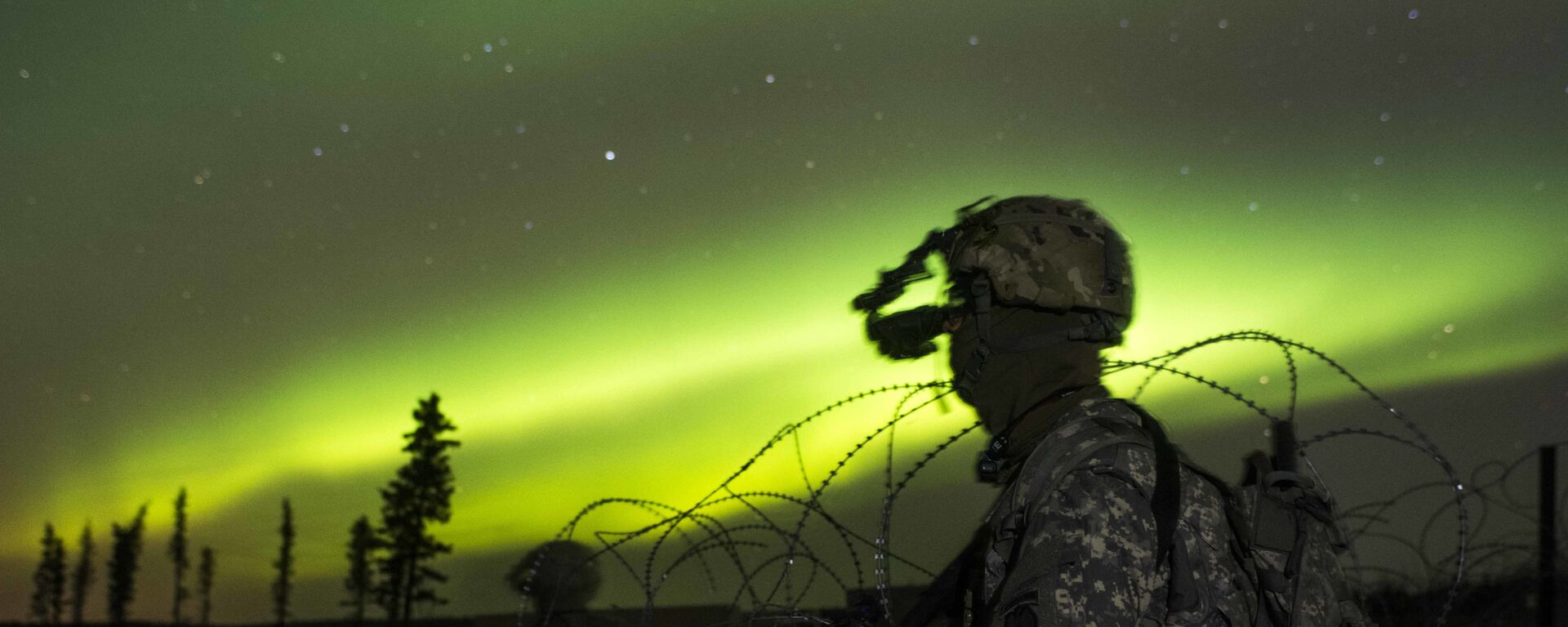Sweden's NATO Membership Final Piece in US' Arctic Gamble
18:05 GMT 06.07.2023 (Updated: 15:47 GMT 07.07.2023)
Subscribe
Washington is pushing Sweden to join the alliance in order to gain strategic advantage in the Arctic, Nikita Lipunov, an analyst at the Institute for International Studies, MGIMO-University, told Sputnik.
US President Joe Biden reiterated his support for Sweden joining NATO during the meeting with the Nordic country's Prime Minister Ulf Kristersson on Wednesday.
The White House has urged Turkiye to green-light Stockholm's accession to the military bloc prior to the NATO Summit in Vilnius scheduled for July 11-12. However, Ankara signaled that it is not ready to ratify Sweden’s membership on Monday given the latter's failure to meet Turkiye's requirements concerning the fight against Kurdish "terrorist organizations" and "Islamophobia."
"The United States has been striving for the full integration of the Nordic countries into NATO for many years, by actively developing defense ties with them," an analyst at the Institute for International Studies, MGIMO-University, Nikita Lipunov, told Sputnik.
"As a result, both Finland and Sweden had already been deeply integrated into the alliance system by the time they applied to NATO. By pushing NATO eastward, Washington seeks to contain Russia, which is directly stated as the goal of their policy towards Moscow in the National Security Strategy. The expansion of the alliance through Sweden will seriously strengthen NATO's northeastern flank, since it will include the entire Nordic-Baltic region, making the Baltic Sea an almost internal sea of the bloc."
NATO's Northeastern Flank
Given the close integration of the states of Northern Europe in political, defense, transport and other spheres, the northeastern flank will become more cohesive and militarily connected, according to Lipunov. "This qualitatively changes the military-strategic situation in Europe and poses a threat to Russia's security along the entire western border," the expert warned.
What's more, Sweden's accession to the bloc will have an indirect impact on the Arctic, most notably the adjacent Barents Euro-Arctic region, where military activity and tension will increase, Lipunov continued.
NATO has so far taken a low-key position on the issue of presence and activities in the Arctic with its main activities being focused on the adjacent waters of the North Atlantic, which is of critical importance for the organization. However, in the long term, NATO may reconsider its approach, including after a prospective expansion to Sweden, as per the analyst.
US' Pivot to Arctic
The Trump and Biden administrations have placed special emphasis on the Arctic.
The US' renewed pivot to the high North was well reflected in the US Department of Defense's 2019 Arctic Strategy. Later, the US Coast Guard published its Arctic Strategic Outlook in April the same year. The Air Force came up with its blueprint in July 2020. The Navy outlined its Arctic strategy in January 2021. The US Army released its "Regaining Arctic Dominance" on March 16, 2021.
In accordance with its strategy, Washington struck the Supplementary Defense Cooperation Agreement with Norway in April 2021 to allow the US to build infrastructure at three air bases and a navy facility along the Norwegian coast. The Pentagon and its NATO allies also stepped up joint naval and air drills in the region.
Russia's special operation in Ukraine was used as a pretext to persuade previously neutral countries Finland and Sweden to join the bloc, thus making seven Arctic nations, which are key to Washington's "dominance" in the region, NATO allies. While Finland's NATO membership has already been ratified by the bloc's member states, Sweden's application is still hanging in the balance.
Lipunov pointed out that the Arctic "has been a zone of strategic nuclear deterrence between the USSR/Russia and the US."
"Due to climate change and ice melting, the [Arctic] region is becoming more accessible, forcing coastal states to increase their military presence there," the expert explained. "For Russia, the Arctic is a strategically important region due to many reasons, so it is actively strengthening its defense in the Arctic zone. In light of the new great power rivalry and changing climate conditions, the US perceives the Arctic as another theater of confrontation with Russia and China. [The Arctic] links the Euro-Atlantic and Asia-Pacific regions which are crucial to US security. These circumstances have dictated a more active US Arctic policy in recent years."
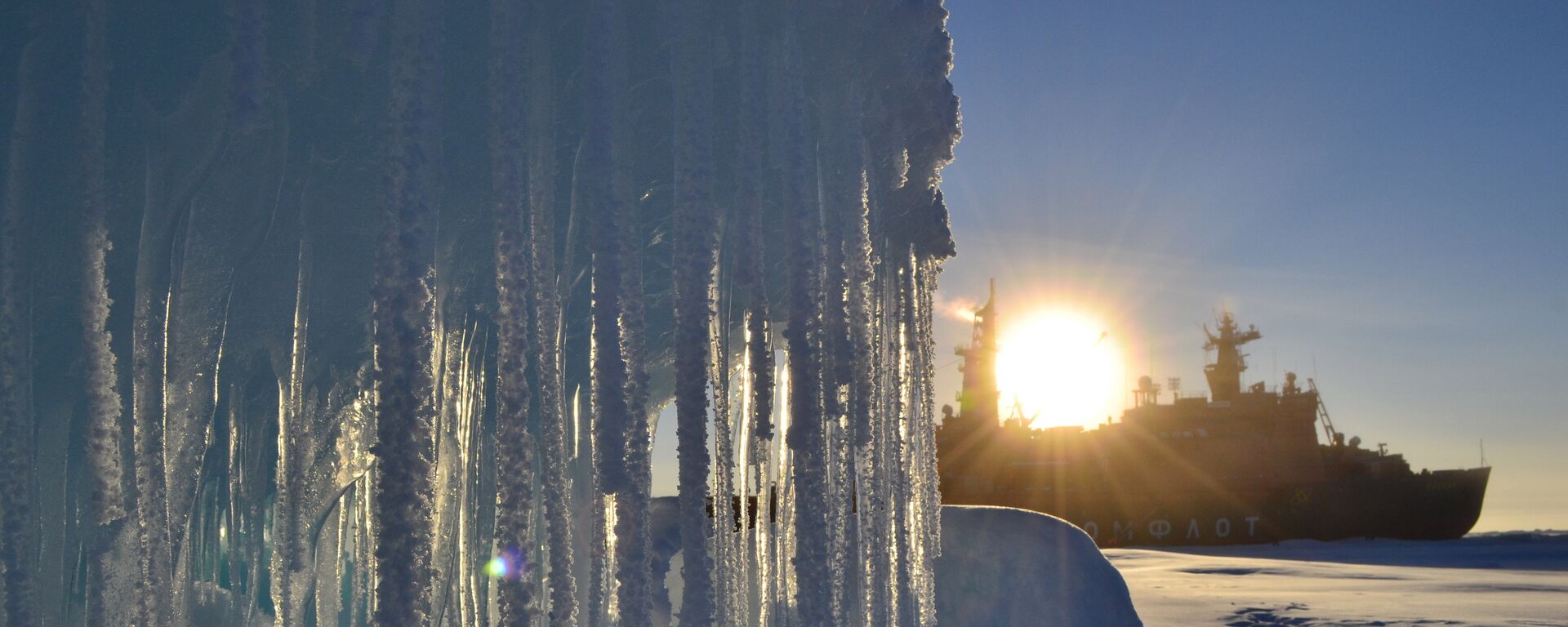
9 December 2022, 12:30 GMT
Russia's Strong Hand in the Arctic
Russia stretches over 53% of the Arctic Ocean coastline, accommodating nearly half of the population living in the Arctic worldwide.
Even though Russia is confronted by seven Arctic nations in the region, it still maintains strong positions and full control over its Arctic territories, according to international observers. Samu Paukkunen, deputy director of the Finnish Institute of International Affairs, believes that the Western military is behind Russia in the Arctic by about ten years in terms of defense and readiness. Lipunov agrees with this assessment.
"Russia is the largest and oldest Arctic power," the expert said. "Since Soviet times, Moscow has been actively strengthening its military presence and defense in the High North, and in recent years there has been an active modernization of the armed forces stationed in the Russian Arctic zone. Thanks to this, Russia has become a leader in this area. Western states are striving to catch up and have been actively increasing their presence in the high North, increasing defense spending and developing special military technologies. The entry of Finland and the prospective entry of Sweden into NATO will help to narrow this gap at the expense of their highly developed technology sectors. A valuable asset for NATO will be Finnish and Swedish technology in the field of communications, armaments and the construction of icebreakers."
For its part, Russia has been partnering with China in order to maintain regional peace and stability in the Arctic. Both countries have repeatedly stressed that their cooperation is not aimed at any third-party nations.
Meanwhile, Beijing's white paper "China's Arctic Policy" advocates for the peaceful use of the Arctic. In April 2023, Moscow and Beijing signed a memorandum of understanding on strengthening maritime law enforcement cooperation in the Russian northern city of Murmansk, as per the Chinese press.
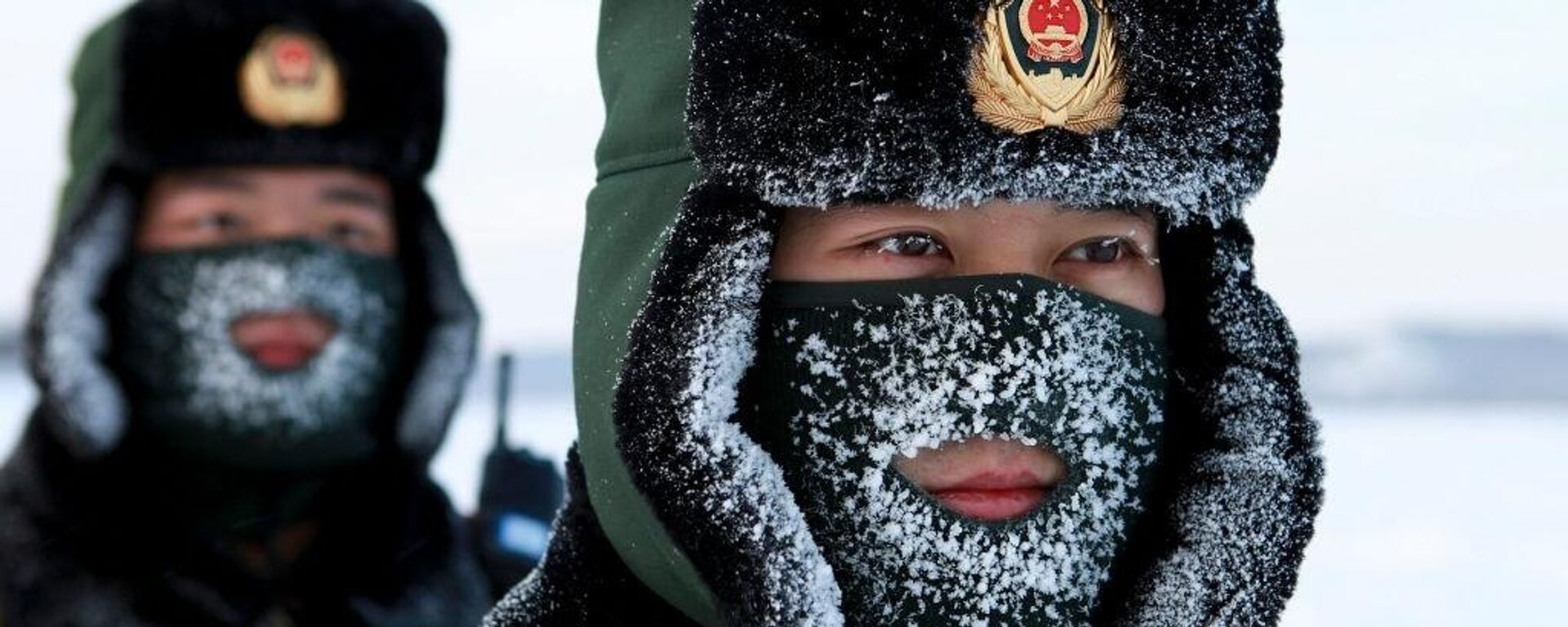
17 October 2022, 14:02 GMT

